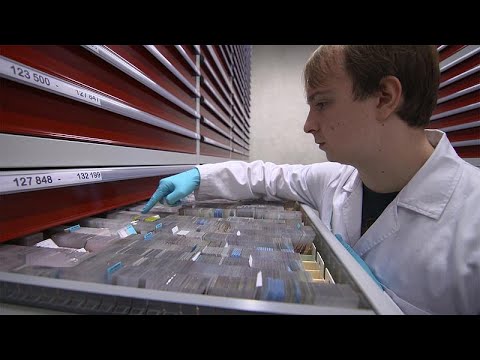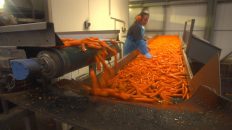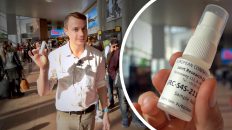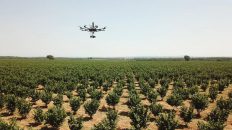People living in developed countries have a higher chance of being diagnosed with colon cancer. Over 1 million new cases of the disease are found – which is often difficult to treat – every year. But now Biobanks across Europe are collecting carcinoma samples to combat the disease.
Euronews journalist Denis Loctier says the samples are invaluable for increasing knowledge around the disease.
“Medical researchers use these samples to study complex diseases — such as cancer. The more samples they can access, the higher the chances of better understanding the disease and finding new treatments. Here in Austria and across Europe, scientists are now building a new research infrastructure that provides access to tens of millions of human biological samples.”
Biobank Graz’s managing director Karine Sargsyan spoke to Euronews about the operation.
“We have more than 60 thousand samples of colon cancer which is a huge number. But we have almost everything that you can imagine. Starting from hair to small pieces of a muscle or skin — we have everything.”
The samples are all treated differently. Some are fixed and preserved at room temperature, while others are frozen.
“We have also living samples here — cryopreserved tissue which is stored in liquid nitrogen in very cold temperatures. This tissue is still living, and there are some specific research questions that you can only answer by having a living piece of tissue.”
Surgery patients are able to donate their infected tissue cells for research purposes. The samples are then fixed in formalin and processed into thin slices which are registered in the database.
Researchers are able to acquire necessary data and samples through a joint infrastructure, BBMRI, that provides access to roughly 200 million samples in European biobanks. For Petr Holub, the head of IT at BBMRI-ERIC, the samples also require a lot of external information about the donors to provide a bigger picture of the disease.
“The important thing to realize is that the biological samples themselves are typically not sufficient enough to do the research. You need information about the patients, or about the donors in case of cohorts. Information about a treatment they were undergoing, about possible environmental exposure amongst other things.”
Thousands of samples are placed in glass slides that are scanned by an automatic device every day. This provides valuable material to learn algorithms that have the potential to revolutionize medical diagnostics in the future.
Kurt Zatloukal from the Medical University of Graz Soije to Euronews about the technology.
“There are now completely new ways to examine biological materials. These slides are much more relevant to researchers now that they can be digitized with high-resolution scanners. This makes them crucial in training the algorithms that can recognize morphological changes better than humans.”
Biobanks can pave the way to a faster diagnosis of colon cancer and other diseases. Christian Gully from the medical university of Graz believes the technology will provide more personalized therapy for individual patients.
“The ultimate goal is to develop new algorithms with a very high accuracy rate, capable of producing a better diagnosis than conventional methods. And this is exactly where we want to go — finding the optimal treatment for patients, as fast as possible”.





